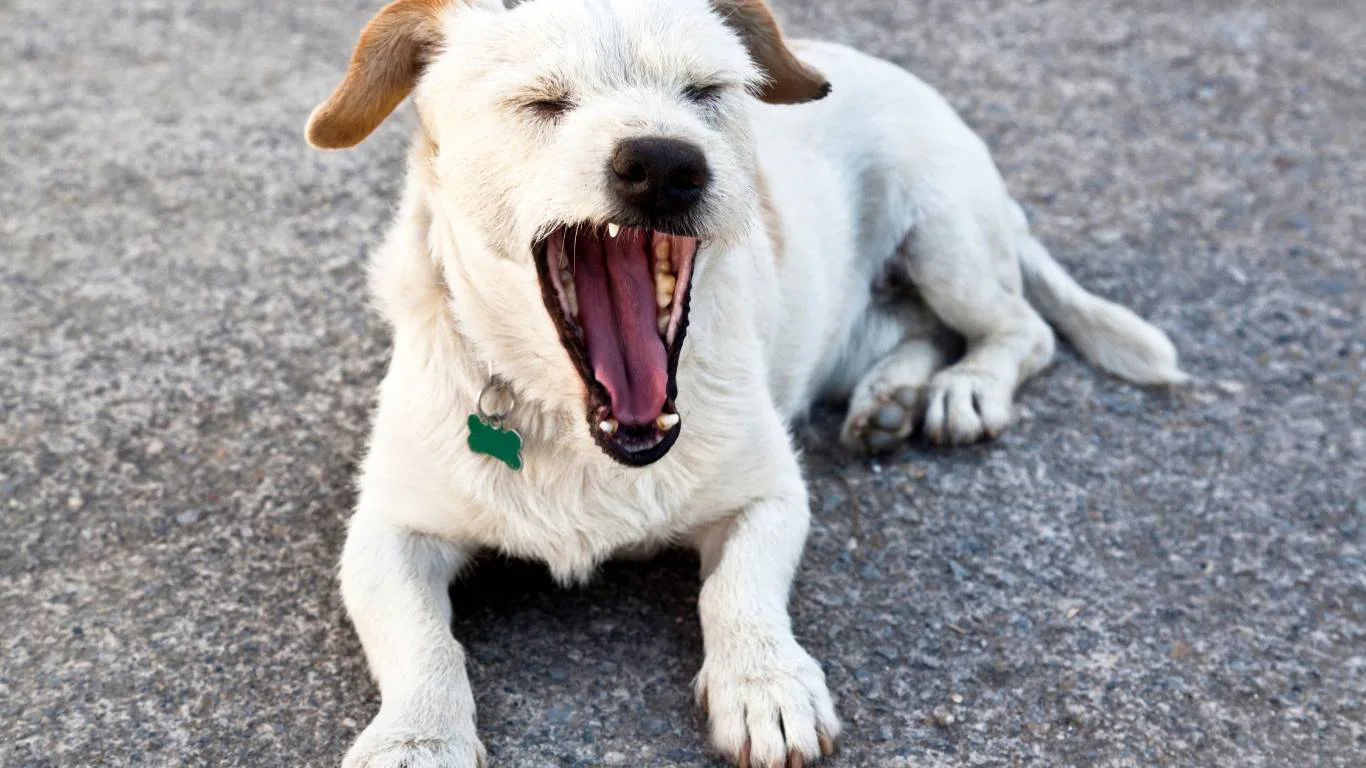What to Feed a Dog with Liver Disease: Essential Diet Tips for Health
As a pet nutritionist and expert in pet care, I’ve had the privilege of working with many dogs who suffer from liver disease. It’s an emotional and challenging journey for both the pets and their owners, but with the right care and the proper diet, dogs with liver disease can lead happy, healthy lives. One of the most common questions I get asked in my practice is: “What should I feed my dog with liver disease?” This is an incredibly important question, as the right diet can greatly improve the quality of life for a dog suffering from this condition. In this article, we’ll dive deep into the ideal nutrition and feeding strategies to support a dog’s liver health.
Understanding Liver Disease in Dogs

Liver disease in dogs can be a complex issue, but understanding the basics of how the liver works is crucial. The liver is responsible for several vital functions, such as filtering toxins, metabolizing nutrients, and producing bile for digestion. When a dog has liver disease, these processes become impaired, which can lead to a range of symptoms including jaundice, loss of appetite, vomiting, and lethargy. The condition can be caused by various factors, such as infections, toxins, genetic conditions, and certain medications. If you suspect your dog has liver disease, it’s crucial to visit a vet who can diagnose the problem and recommend the best course of action, which includes changes to their diet.
Once a diagnosis is made, your vet may recommend specific dietary adjustments to help support liver function. These adjustments will often focus on reducing the strain on the liver, improving digestion, and helping with nutrient absorption. In the following sections, I’ll guide you through the essential dietary components you should focus on when feeding a dog with liver disease, based on my own experiences in the veterinary field.
The Importance of Protein in Liver Disease Diets
Why Protein Matters for Liver Health
One of the first things you’ll hear when it comes to liver disease diets is about protein. Protein is a crucial part of any dog’s diet, but when dealing with liver disease, it’s essential to choose the right type and amount. The liver plays a central role in protein metabolism, and if it’s not functioning properly, it can struggle to process protein efficiently. However, cutting out protein entirely isn’t the solution—dogs still need protein to maintain muscle mass and overall health. The key is to provide easily digestible, high-quality protein in the right amounts.
Types of Protein for Dogs with Liver Disease
So, what kind of protein should you feed a dog with liver disease? Based on my experience, it’s best to opt for high-quality, highly digestible proteins that won’t put too much strain on the liver. Here are some great options:
- Chicken: Skinless chicken breast is lean and easy to digest. It’s often the go-to choice for dogs with liver issues.
- Turkey: Like chicken, turkey is a lean protein that’s gentle on the digestive system.
- Eggs: Eggs are a wonderful source of high-quality protein that is easy on the liver. Just be sure to cook them thoroughly.
- Fish: Fish like salmon or whitefish can provide healthy omega-3 fatty acids and protein while being gentle on the liver.
As a general rule of thumb, you should avoid feeding your dog red meat or organ meats, as they are harder to digest and could worsen liver stress. Always check with your vet to determine the best protein source for your dog’s specific condition.
Managing Fats and Carbohydrates for Liver Health

Balancing Fats in the Diet
When it comes to fat in the diet, moderation is key. The liver is responsible for metabolizing fats, so when it’s not functioning properly, it’s important to control fat intake. However, dogs still need fats for energy and overall health. The best fats for dogs with liver disease are easily digestible fats, like those found in fish oil and flaxseed oil. These healthy fats contain omega-3 fatty acids, which can help reduce inflammation and support liver health.
It’s also essential to keep an eye on the fat levels in commercial dog foods, especially if you’re using processed options. You want to avoid foods that are too high in fat, as they can cause digestive upset and further strain the liver. A good approach is to work with your vet to select a food that provides a healthy balance of fats without overloading the liver.
Carbohydrates: A Source of Energy
Carbohydrates are an important energy source for dogs with liver disease, but like fat, they need to be carefully managed. Easily digestible carbohydrates, like white rice, sweet potatoes, and oats, are ideal choices. These carbs are gentle on the digestive system and can provide the necessary energy without overloading the liver. Avoid complex grains like wheat and corn, as they can be harder for dogs to digest and might aggravate liver problems.
Vitamins and Supplements for Liver Health

Supplements can play a key role in supporting your dog’s liver health. Based on my clinical experience, certain vitamins and minerals can help aid in liver recovery and boost overall health. For example, vitamin E, vitamin C, and the amino acid taurine can provide antioxidant support, helping to reduce oxidative stress on the liver. Additionally, silymarin, derived from milk thistle, is a popular supplement used to support liver function. Always consult your vet before adding supplements to your dog’s diet to ensure they are safe and beneficial for their specific condition.
Hydration: A Crucial Component of Your Dog’s Diet

When dealing with liver disease in dogs, hydration is often overlooked, but it plays an essential role in supporting their overall health. As someone who works closely with pet owners, I can’t emphasize enough how crucial it is to ensure that your dog stays well-hydrated throughout their treatment. The liver’s ability to process nutrients and remove toxins can be compromised in dogs with liver disease, which means that hydration helps flush out those toxins, keeping the system functioning better.
If your dog is experiencing symptoms like vomiting or diarrhea, they may be losing fluids more quickly, which makes hydration even more vital. In these cases, offering fresh water frequently is key, and you might even need to introduce methods like wet food or flavored water to encourage them to drink. Some dogs enjoy a splash of low-sodium chicken broth or even ice cubes, which can help with hydration. Always make sure that your dog has access to clean, fresh water at all times to prevent dehydration.
Choosing the Right Dog Food for Liver Disease
Commercial Diets: Pros and Cons
When it comes to feeding a dog with liver disease, many pet owners ask if they should stick to commercial dog food or try homemade meals. From my experience, both options have their benefits, but it’s essential to pick the right one based on your dog’s specific needs. Some vets may recommend prescription dog foods formulated specifically for liver disease, such as Hill’s Prescription Diet l/d or Royal Canin Hepatic. These diets are designed to support liver function and reduce the workload on the liver, offering carefully balanced nutrients.
The advantage of commercial diets is that they take the guesswork out of feeding your dog. These specially formulated foods typically contain the right balance of protein, fats, carbohydrates, and other essential nutrients tailored to liver disease. They also come in various forms, such as dry kibble, wet food, and even liquid forms for dogs with difficulty chewing. However, the downside is that some dogs may not find these diets particularly appetizing, and they can be costly in the long term.
Homemade Diets for Dogs with Liver Disease
If you’re a dog owner like me, who enjoys preparing meals for their pets, you may consider homemade diets for liver disease. One of the benefits of homemade meals is that you can carefully control the ingredients and ensure that everything your dog eats is fresh and high-quality. In my practice, I’ve seen many pet owners find success with homemade diets, especially if they are tailored to their dog’s specific needs. With the right guidance from your vet or a pet nutritionist, you can craft a balanced meal plan that includes lean proteins, low-fat sources of carbohydrates, and appropriate vitamins and minerals.
When preparing homemade meals, it’s important to focus on easily digestible ingredients. Some great options are:
- Boiled chicken breast or turkey (lean, easy to digest)
- White rice or sweet potatoes (gentle on the digestive system)
- Carrots and peas (rich in fiber and vitamins)
- Low-fat cottage cheese or plain yogurt (for added protein and probiotics)
However, creating a balanced homemade diet can be more complex than it seems. You’ll need to work closely with your vet to ensure that your dog is getting all the necessary nutrients in the correct proportions. It’s always a good idea to have a professional review your recipe to avoid any potential nutritional imbalances.
The Role of Fiber in a Dog’s Liver Disease Diet

Fiber is another important aspect to consider when feeding a dog with liver disease. It plays a critical role in digestion and helps regulate bowel movements. Additionally, fiber can help support liver function by improving the digestion and absorption of nutrients. It also aids in controlling blood sugar levels, which is crucial because liver disease can sometimes lead to insulin resistance or blood sugar imbalances.
Types of Fiber That Benefit Dogs with Liver Disease
Not all fiber is created equal, and when it comes to liver disease, some types of fiber are more beneficial than others. Soluble fiber, which is found in foods like oats and sweet potatoes, is particularly helpful for dogs with liver disease. It helps to stabilize blood sugar levels and can improve gut health by providing a food source for beneficial bacteria in the intestines.
In addition to soluble fiber, some dogs benefit from insoluble fiber, which helps to promote regular bowel movements. Foods like pumpkin and carrots are good sources of this type of fiber. If your dog has diarrhea, the right type of fiber can also help to firm up stools and ease gastrointestinal discomfort.
As I’ve learned in my time as a pet nutritionist, it’s always important to make gradual changes to your dog’s fiber intake. Too much fiber too quickly can cause bloating or discomfort, so it’s always best to introduce new foods slowly and monitor your dog’s response. And remember, consult with your vet if you’re unsure of the ideal fiber content for your dog’s specific condition.
What to Avoid When Feeding a Dog with Liver Disease
Foods to Steer Clear Of
Just as there are foods that are beneficial for dogs with liver disease, there are also certain foods that should be avoided at all costs. Some of these foods can exacerbate liver damage, make digestion more difficult, or simply cause discomfort. Based on my professional experience, here’s a quick list of foods that you should avoid feeding your dog with liver disease:
- Fatty cuts of meat (e.g., bacon, beef, lamb)
- Processed foods (e.g., commercial dog treats with artificial additives)
- Garlic and onions (even in small amounts, they can be toxic to dogs)
- Alcohol (extremely harmful to a dog’s liver)
- Dairy products (some dogs have trouble digesting dairy, and it can worsen digestive issues)
Additionally, if you are feeding a homemade diet, it’s important to ensure that any herbs or spices you use are safe for dogs. Always double-check with your vet before introducing any new ingredients to your dog’s meals.
In the next part of the article, we will explore additional dietary strategies, as well as tips for monitoring your dog’s liver health at home. Stay tuned for more in-depth information on how to provide your dog with the best nutrition during this challenging time.
Monitoring Your Dog’s Liver Health: Key Signs to Watch For

As a pet owner managing a dog with liver disease, staying vigilant is key. While the proper diet is essential, it’s also important to regularly monitor your dog’s health and behavior for any signs that their condition might be worsening or improving. I’ve worked with many pet owners who are understandably worried about their dog’s well-being, so I always advise them to keep a close eye on any changes, whether big or small. A lot of the time, subtle signs can indicate that your dog needs a dietary or medication adjustment. In this section, I’ll cover some of the important signs to watch for and explain how to assess your dog’s condition at home.
Common Signs of Liver Disease Flare-Ups
While liver disease is chronic, there are times when symptoms flare up or worsen. Being able to recognize these flare-ups can make a significant difference in your dog’s recovery and help you seek veterinary attention sooner rather than later. Here are some common signs of liver disease flare-ups to keep an eye on:
- Increased lethargy – If your dog is more tired than usual, even after a good rest, this could indicate that their liver is struggling to function properly.
- Jaundice – A yellow tint to the skin, eyes, or gums is one of the most noticeable signs of liver disease. This occurs when the liver is unable to process bilirubin efficiently.
- Loss of appetite – Liver disease can cause nausea or discomfort, leading to a decrease in appetite. If your dog is turning down their meals consistently, it could be a sign that something’s wrong.
- Vomiting or diarrhea – Both of these can occur if your dog’s liver isn’t processing nutrients or toxins properly.
- Increased drinking or urination – If you notice your dog is drinking and urinating more than usual, it could be due to liver function issues or medications they may be taking.
If you notice any of these symptoms, it’s essential to contact your vet right away. The sooner you can address the issue, the better your dog’s chances of getting back to normal. It’s also helpful to track changes in behavior or symptoms in a notebook or an app. I recommend using a simple health journal to log your dog’s food intake, hydration levels, bathroom habits, and behavior. This can help your vet assess their progress and make adjustments as needed.
Supplements and Medications for Liver Disease

Supplements and medications often play a role in managing liver disease in dogs. While diet forms the foundation of their treatment, additional support from certain supplements or prescribed medications can make a big difference in your dog’s health. In my experience, many dog owners are wary of using supplements or medications, but they can be crucial for stabilizing the condition and promoting liver function recovery. Here’s an overview of what might be recommended:
Common Supplements for Liver Support
There are several well-known supplements that can help support liver health. These supplements are often used in combination with dietary changes to reduce inflammation, enhance detoxification, and protect liver cells from further damage. Some of the most commonly used supplements include:
- Milk Thistle (Silymarin): Milk thistle is a powerful antioxidant that helps protect liver cells from damage and encourages regeneration of healthy liver tissue. I’ve seen great success with this supplement in many of my own cases, and it’s widely recommended by vets.
- Vitamin E: This vitamin is another powerful antioxidant that helps to reduce oxidative stress on the liver. It also supports overall cell function and immune health.
- Vitamin B Complex: B vitamins, particularly B12, are often deficient in dogs with liver disease. Supplementing B vitamins can help improve appetite, energy levels, and overall liver function.
- Omega-3 Fatty Acids: Found in fish oil, omega-3s are known for their anti-inflammatory properties. They can help reduce liver inflammation and support the overall healing process.
Always consult your vet before adding any supplements to your dog’s routine, as the wrong supplement or dosage could have adverse effects. Your vet will be able to recommend the best supplements based on your dog’s specific needs and liver condition.
Medications for Liver Disease
In addition to supplements, your dog may need medications prescribed by your vet to manage the symptoms of liver disease or address underlying causes. For example, if your dog has an infection that is contributing to liver damage, antibiotics or antifungal medications might be needed. For dogs with chronic liver disease, medications to reduce liver inflammation or improve bile flow could be prescribed as well.
Some commonly prescribed medications include:
- Denamarin: A combination of silybin (milk thistle) and SAMe (S-adenosylmethionine), which supports liver function and helps protect liver cells from damage.
- Ursodiol: Used to improve bile flow and reduce liver inflammation.
- Prednisone: An anti-inflammatory drug that may be prescribed for dogs with liver disease to reduce inflammation.
Again, the medications and dosages must be tailored to your dog’s specific condition, so always follow your vet’s recommendations closely. It’s also important to have regular check-ups to monitor how your dog is responding to the medication and if any adjustments are necessary.
Long-Term Management of Liver Disease in Dogs
Liver disease in dogs is a long-term condition that requires consistent management. But with the right approach, many dogs can live comfortable, happy lives. In my years of working with dogs with liver disease, I’ve seen firsthand how crucial it is to stay committed to their care. Some essential elements of long-term management include:
- Regular veterinary check-ups: Frequent visits to your vet are necessary to monitor your dog’s liver health, adjust their diet, and evaluate their response to treatments.
- Consistent dietary management: Stick to the recommended diet and avoid giving your dog any human food that could exacerbate their condition.
- Monitoring behavior and symptoms: Keep a close eye on any changes in your dog’s behavior, energy levels, appetite, or bathroom habits. Early detection of issues can help avoid more serious complications.
With the right care and attention, your dog can thrive even with liver disease. As always, make sure to consult with your vet regularly to adjust your dog’s treatment plan as needed.
Disclaimer: The information provided in this article is for general informational purposes only. It should not be considered medical advice. Always consult your veterinarian before making any changes to your dog’s diet, medication, or healthcare routine.
For more details on managing liver disease in dogs, visit reliable pet health websites such as PawPatron or consult with a veterinary nutritionist.






